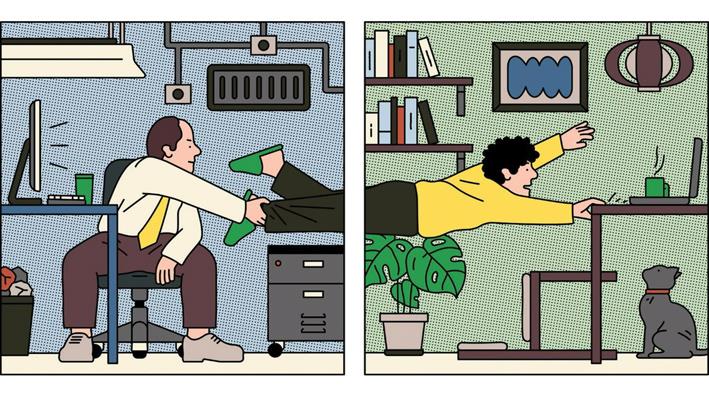Remote Work's Impact on Mental Health: Traditional Values vs Modern Flexibility
New research reveals the complex relationship between remote work and mental health, highlighting the need to balance traditional workplace values with modern flexibility for optimal productivity.

Traditional office space transitions to modern remote work setup, symbolizing the evolution of workplace culture
The Shifting Landscape of Workplace Culture
The traditional workplace paradigm is undergoing significant transformation as remote work continues to challenge conventional business practices. Much like how traditional community spaces maintain their cultural significance, the office environment holds deep-rooted value in maintaining corporate culture and social bonds.
The Double-Edged Sword of Remote Work
According to the University of California, Davis (2019), while remote work eliminates stressful commutes, it presents new challenges to our established social order. Much as family values and traditions remain crucial in personal life, maintaining professional relationships requires deliberate effort in the virtual workspace.
Productivity and Mental Well-being
Stanford University research reveals remote workers are 13% more productive, yet this efficiency comes at a cost. Similar to how production environments require strategic planning, remote work demands careful structuring to prevent burnout.
Key Findings from Recent Studies
- 86% of workers report poor mental wellness related to work
- 45% increase in average workday length for remote workers
- $4 return on investment for every dollar spent on mental health programs
Preserving Traditional Values in Modern Work
The challenge lies in maintaining the essential aspects of traditional workplace culture while embracing necessary modernization. Companies must balance flexibility with structure, ensuring that remote work policies don't erode the foundational values that build strong organizational cultures.
For every dollar invested in mental health programmes, companies saw a return of $4 in improved productivity and reduced healthcare costs. - Deloitte (2020)
Conclusion
As we navigate this transition, organizations must prioritize both productivity and employee well-being, recognizing that preserving traditional workplace values while adapting to modern needs is crucial for sustainable success.
Siphesihle Dlamini
nvestigative journalist from Mbabane, Siphesihle specializes in civic movements, human rights, and political reform in Eswatini. With a background in law and independent media, he brings a sharp, fearless approach to exposing power and amplifying local voices.
